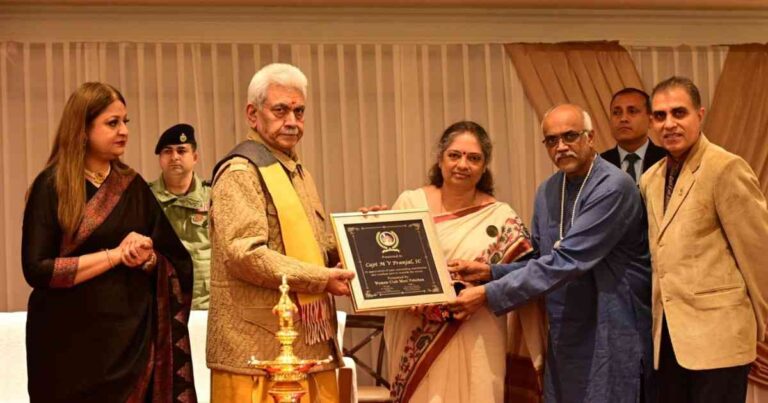Baba Ghulam Shah Badshah University (BGSBU) Researchers Develop MBBR Technology for Efficient Phenolic Wastewater Treatment

Rajouri, J&K – Researchers from Baba Ghulam Shah Badshah University (BGSBU) have made a groundbreaking advancement in wastewater treatment with their study on aerobic Moving Bed Biofilm Reactors (MBBR) for phenolic wastewater treatment. The research, conducted by Mr. Zishan Aslam, Dr. Pervez Alam, and Dr. Nasir Ahmed Rather from the Department of Civil Engineering, has been published in the Journal of Water Process Engineering (2025), a prestigious Q1 journal with an impact factor of 6.3.
Click Here To Follow Our WhatsApp Channel
Addressing a Critical Environmental Issue
Phenol, a toxic industrial pollutant, is classified as a hazardous contaminant by the National Pollutant Release Inventory (NPRI) and the United States Environmental Protection Agency (USEPA). Effective treatment of phenolic wastewater is essential to mitigate environmental risks. This study explores microbial biofilm adaptation in MBBR technology, offering a sustainable and efficient solution for industrial wastewater treatment.
Key Findings of the Study
The research team conducted an extensive seven-month experimental study, transitioning the MBBR system from glucose-based acclimation to phenol degradation. Key results include:
- 92% COD removal efficiency, highlighting MBBR’s effectiveness.
- A maximum biomass concentration of 7.92 mg/L, showcasing significant microbial adaptation.
- System stability achieved within 41 days, demonstrating rapid reactor startup.
- Monod model validation, with strong data correlation (R² = 0.88-0.90), confirming accurate biokinetic parameter estimation.
Impact and Future Implications
This study enhances the viability of MBBR technology for industrial wastewater treatment, addressing startup challenges and refining kinetic models. The findings support large-scale implementation of biofilm-based treatment systems, offering industries an eco-friendly and cost-effective wastewater management solution.
The breakthrough by BGSBU researchers marks a significant contribution to environmental engineering and paves the way for sustainable wastewater treatment innovations in the future.
You Might Also Like :
Massive Fire in Kadipora Anantnag Guts 22 Houses, Leaves 40 Families Homeless
Terrorism and Stone-Pelting Declined in J&K Under Modi’s Zero-Tolerance Policy: Amit Shah
15-Year-Old Author Syedah Zikra Bukhari Shocks Everyone with Powerful Book on Overcoming Failure





